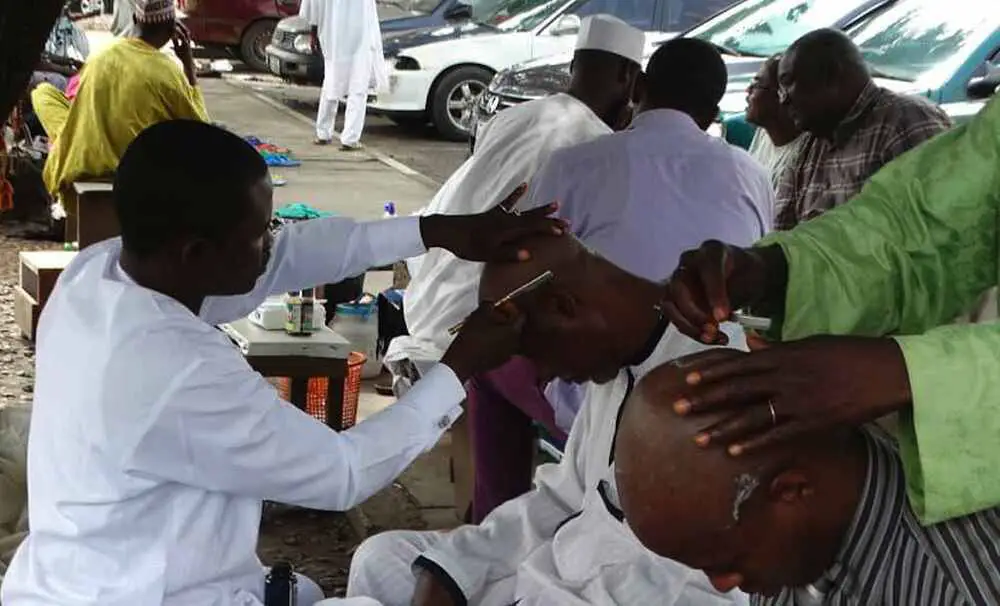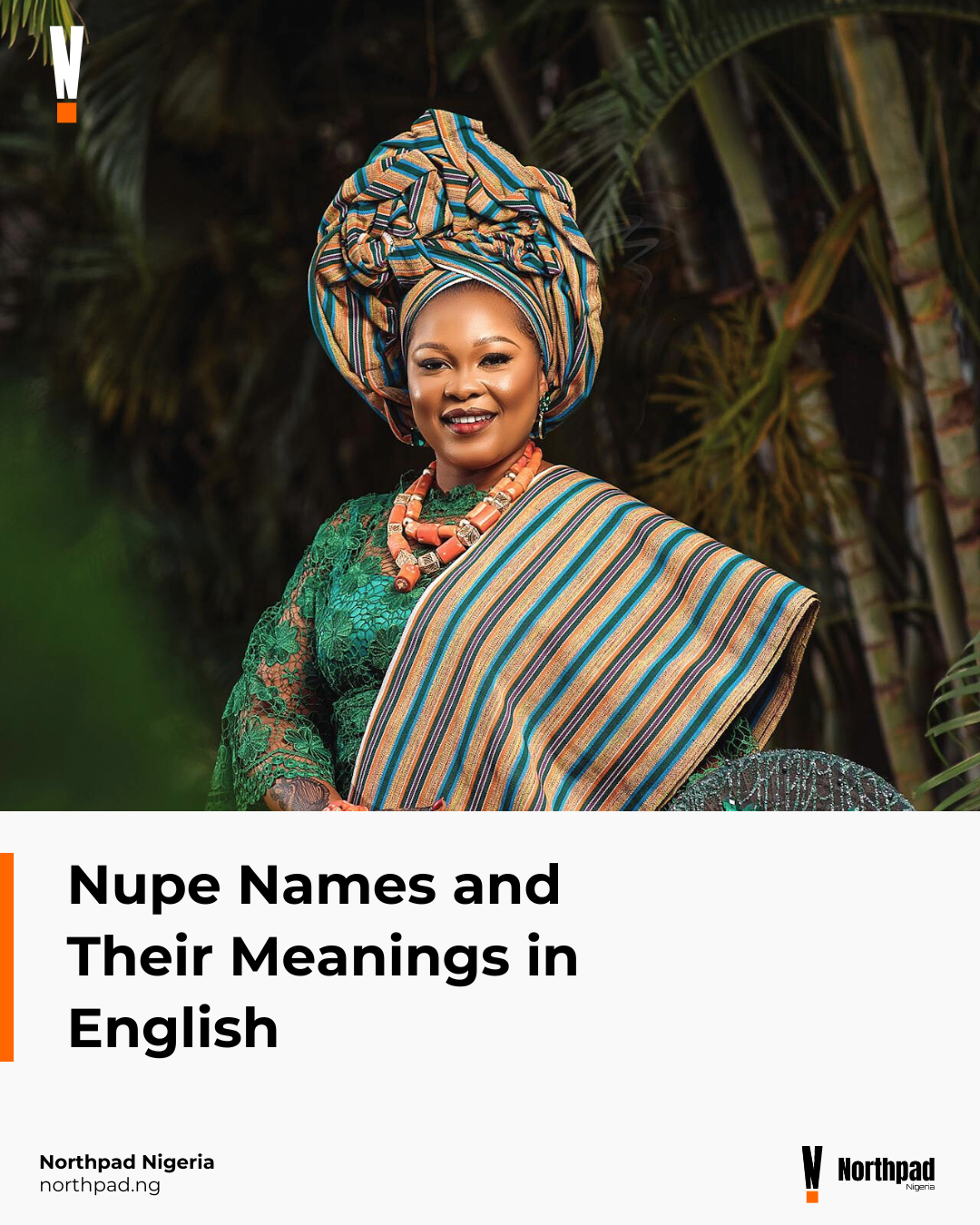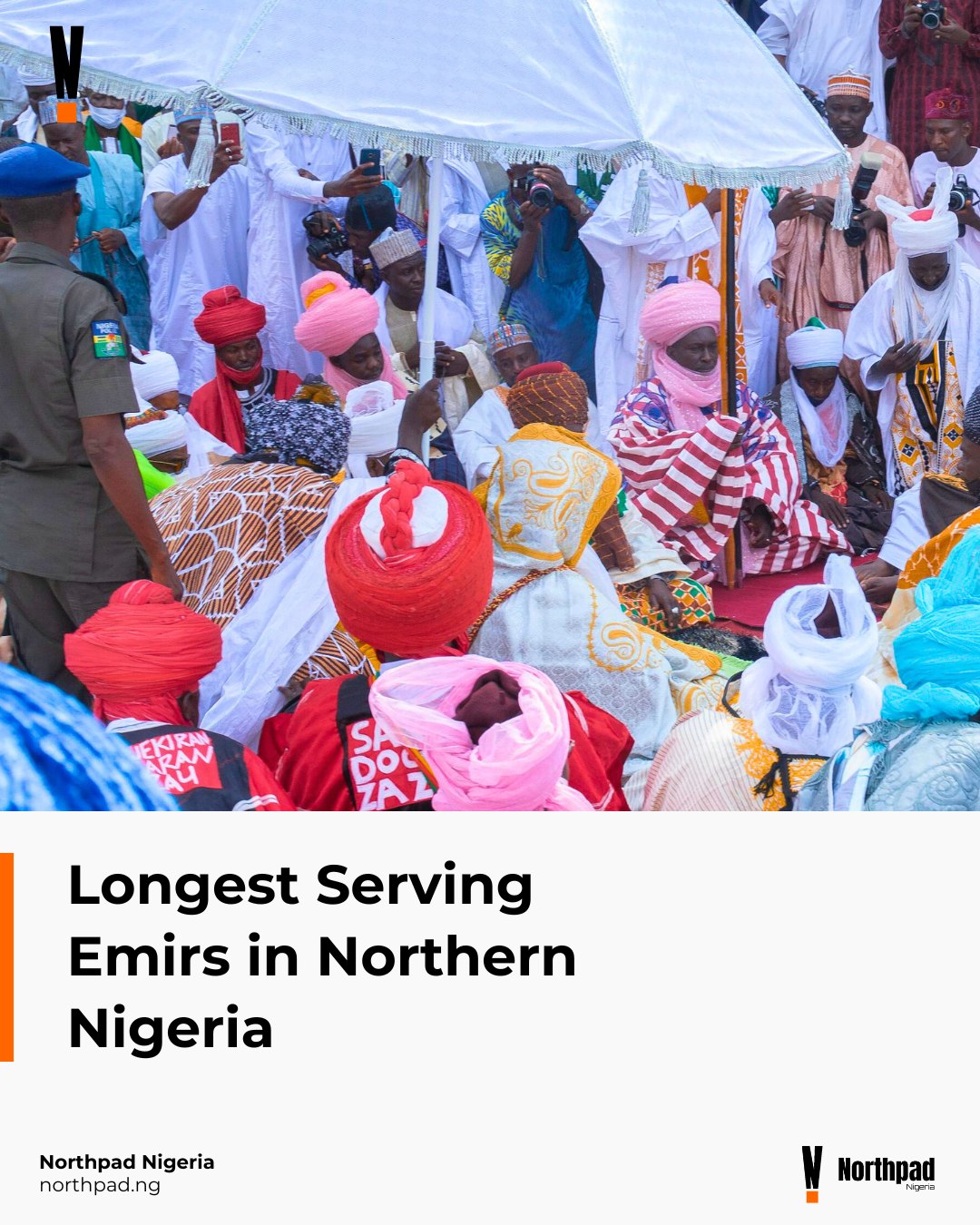Wanzami,(Wanzam or Wanzan) is a local barber, traditional healer, medicine man, circumciser and a physician in Hausaland. Wanzanci, as the occupation is called, is one of the oldest professions in Hausaland.
The work a wanzami does is very vital in society. A wanzan is held in the same regards as a doctor back in the days. He is usually the first call when a baby is born, removal of tonsilitis or when there is a serious illness.
Always seen on the roadside or under the shade of a tree, the Wanzami also performs other services like cupping using a horn, treatment of Wicklow, carving out tribal marks and the rest.
How Wanzamci is Done
While everyone can learn to become s barber in other cultures, this is not the case in Hausa culture. Wanzanci is usually inherited and in most cases the speciality of certain families.
Wanzamai hardly ventures out of the occupation, with some spending up to 60 years in it.
Tools Needed by A Wanzami
Wanzamai can be seen walking around with their shiny leather bags. The Wanzami has all his tools in what is called a Zabira (toolkit). The main tool the wanzami uses for shaving the head is called the Aska ( local blade) The Askas are of various types, sizes and shapes depending on the nature of shaving to be done. Some can be small enough to trim the hairs in the nostrils.

Another tool Wanzami uses is the Kaho (horn), which is used for drawing blood and local cupping therapy. This is done to boost wellness as well as get rid of unwanted blood, increase blood circulation and blood flow as well as allow the creation of new blood cells. The wanzami also uses a small stone, soap for washing the hair before shaving, an aluminium cup, spirit, lighter, Makanna (manual clipper), cup, a stone, soap, spirit, lighter and many more peculiar items.
Other items used include the Yartsaga, a small razor used to make cuts, mawashi that is used to sharpen the blades. Cotton is also used, as well as a Jallo used to keep all hair. A matsefata is a small tool used to remove scars.
How Shaving is Done by The Wanzamai
Once a Wanzami sets out to shave, he first cleans the Aska using as well as use a lighter to kill germs just like when using clippers. The head of the person is then wetted with water, and the soap is rubbed all over.
The wanzan then gets to work, removing all hair in sight, depending on the nature of shave the person wants. After that, a small rag is used to clean the head.
The beards, moustache, sideburns and nostril hairs are also shaved depending on the customers’ preference.
How Kaho is Done
First, the horn is placed on a person’s body and blown. When it touches the skin, it is closed with the hands. After a while, the horn is then removed and a small razor is used to make a tiny incision. Once the sight is cleared, the horn is returned to draw out all the infected blood.
This is repeated several times until the wanzami is satisfied no infected blood is left. The spot is then cleaned with a ball of cotton wool and medicine is applied over it.
Medicine Given by The Wanzamai
Wanzamai have unique talents in identifying and giving out medicines. These drugs are in form of herbs, spices, ground plants or bark of trees. As wanzanci is inherited, no one truly knows the composition of most of these drugs except well-trained wanzamai.
Wanzamai give out medicine for tonsils, typhoid, rheumatism etc. They also help with cases of bedwetting.
How Does One Become a Wanzami?
A person intending to become a wanzan has to undergo rigorous training and gain experience. A typical training lasts between 6 months to two years. Those wishing to specialize in other fields like circumcision last even longer.
The training enables them to learn how to shave without shaking hands, how to prepare medicine, amongst others. This is important to avoid mistakes in the work, as a small cut can prove fatal.
Not everyone can become a wanzam however. Only those who have the wanzamai blood in them, or inherited from their ancestors can become. In most cases, they are sometimes ordained by the Sarkin Wanzamai, the king of wanzamai.
On average, N100-300 is charged per shave, depending on the location.
Special Skills of Wanzamai
More experienced wanzami also have an edge over amateur ones. For instance, an experienced wanzami can perform a bloodless circumcision or a long-distance one! Their services are more efficient too.
During their rituals and festivals, wasan aska where they showcase their talents and skills to the audience. A drummer and a singer are used to attract more audience.
Why the Wanzamci Occupation is Dying
While the Wanzami has mostly adapted to the use of modern technology, the risk of diseases makes people frequent them less. Diseases like Hepatitis, HIV and other communicable diseases can be picked up from a wanzam.
Even though most wanzamai now use razor blades instead of aska, and replace their manual clipper with a modern one, some unhygienic practices persist. The sterilizing of instruments and the use of individual clippers also helps.
Health experts warn that life-threatening ailments can be gotten, or cases of severe bleeding while circumcision. The drugs they administer are also not safe, as they are said to cause kidney failure.
These, however, does not deter the elderly, who are frequent visitors to the wanzamai. Many old people prefer a traditional clean shave from the wanzami than in a barbershop.
Conclusion
While wanzanci is an important traditional occupation in Hausaland and northern Nigeria, it is important to modernize the craft to go along with modern standards. Wanzamai should also be sensitized to the effects of some of the unhygienic practices. They should also be supported with the necessary tools and equipment to help them continue providing essential services, most especially to people in rural areas.
The wanzamai should not be allowed to get extinct.










0 Comments